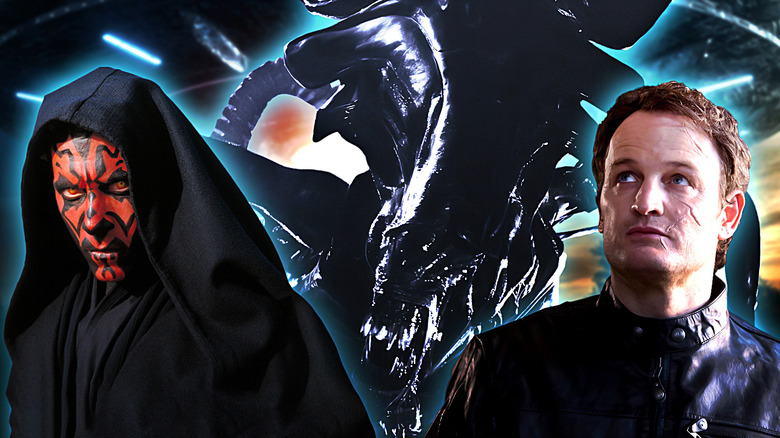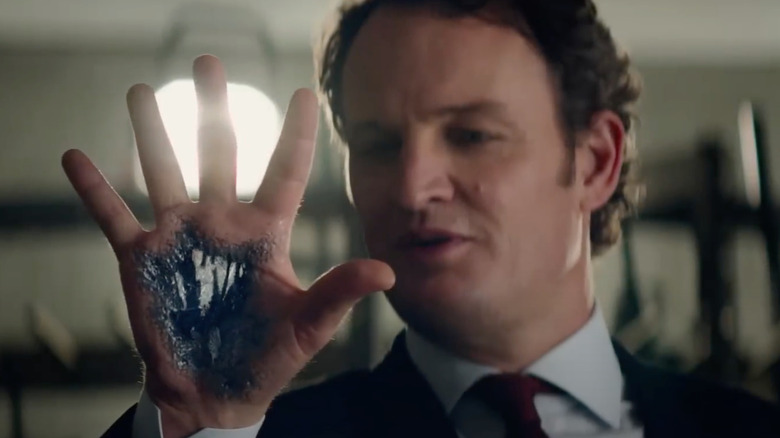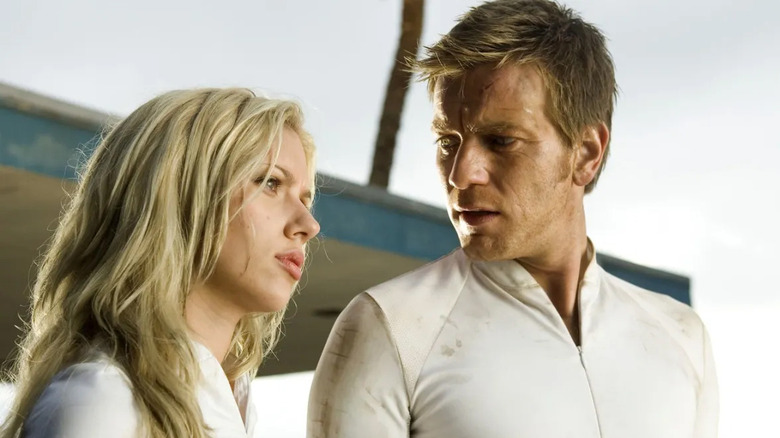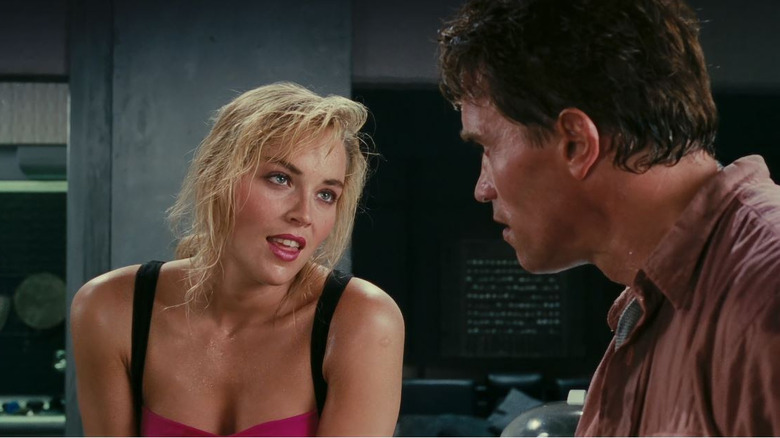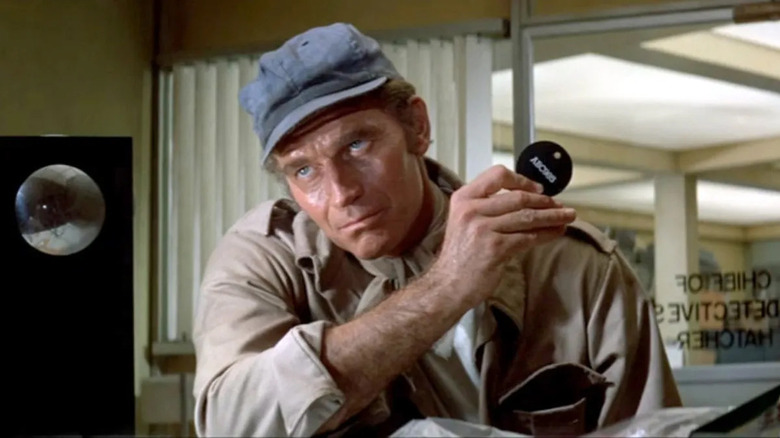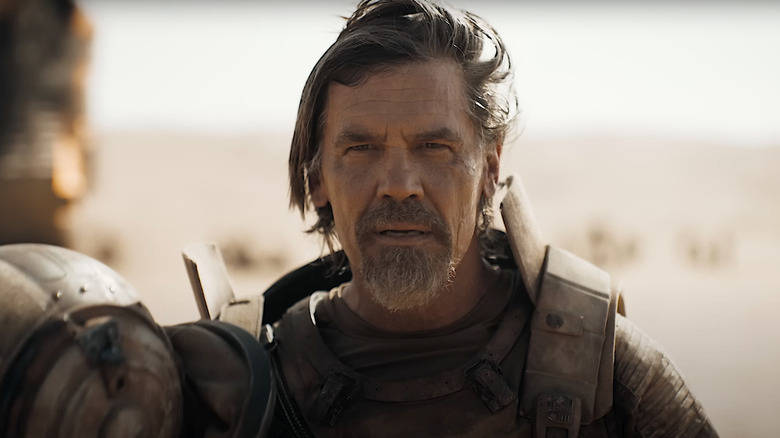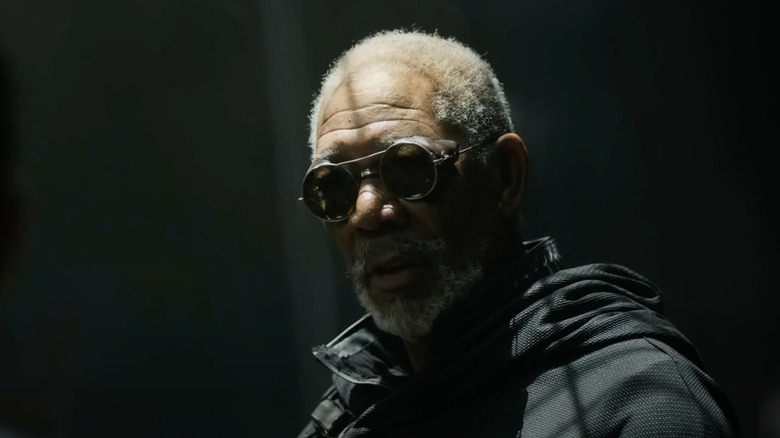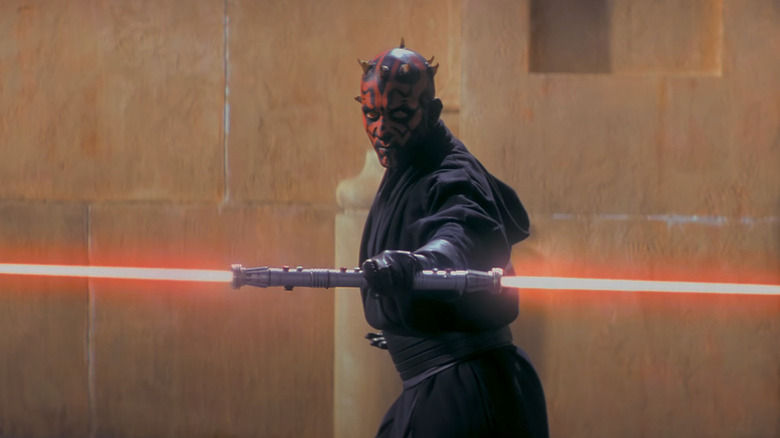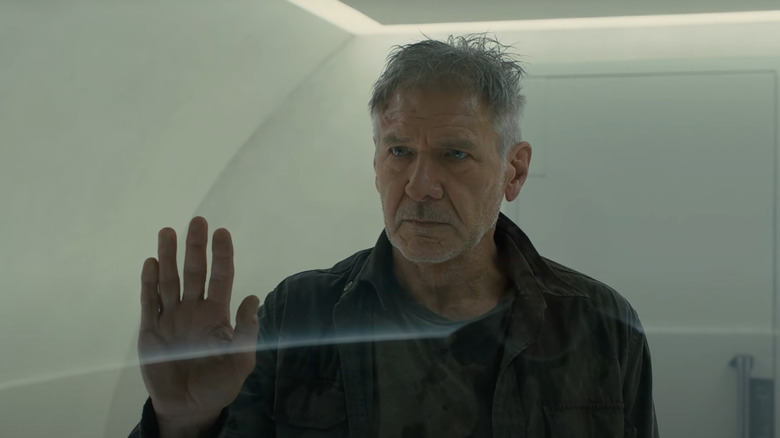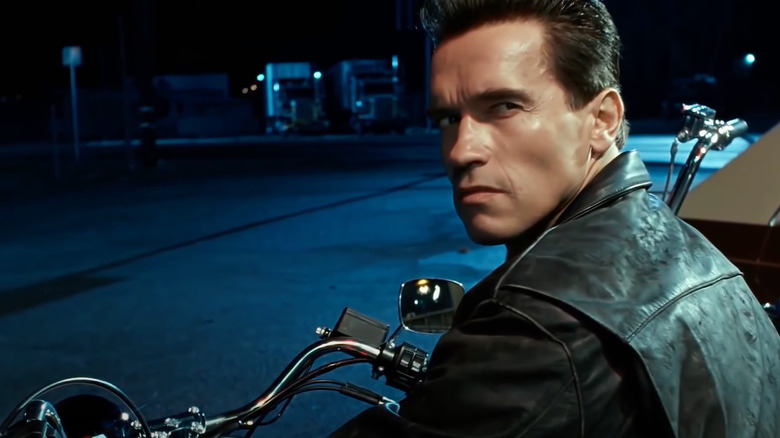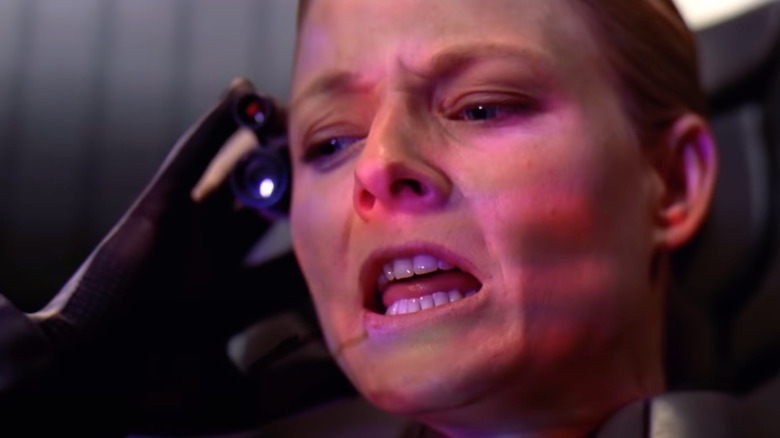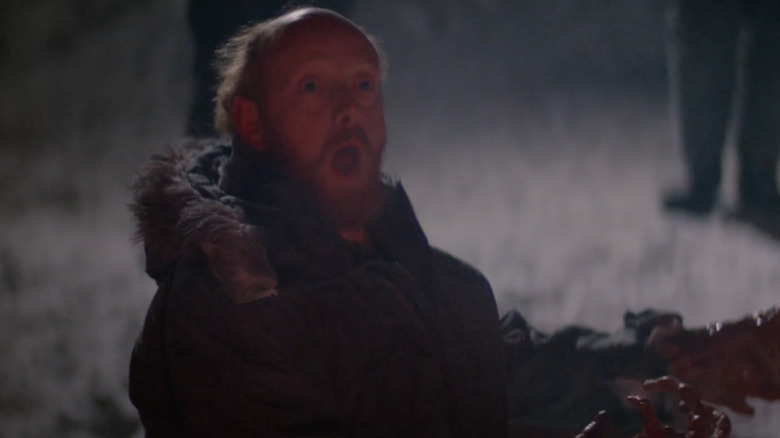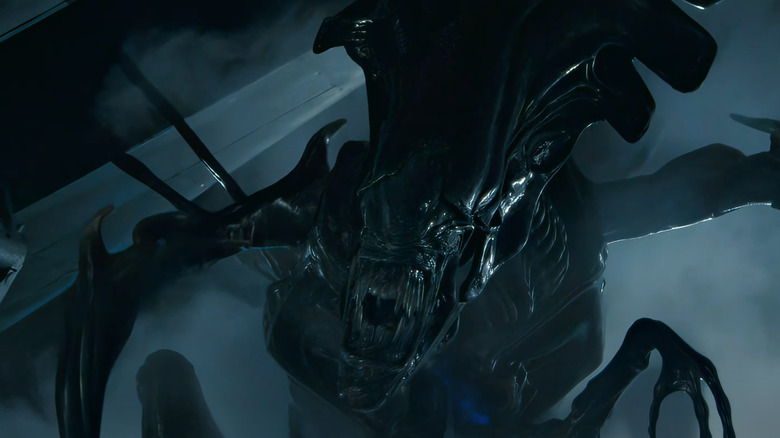Sci-Fi Movie Trailers That Spoiled Everything
Nothing destroys a happy mood like watching a spoiler-filled movie trailer. Last month, someone posted a short TV spot for "Alien: Romulus" that revealed the xenomorph nest/hive that appears in the third act — a secret nugget that would have been thrilling to see on IMAX during my first viewing rather than on a tiny iPhone screen.
Still, despite complaints from fans, studios and marketing companies continually pack include essential plot twists, third-act surprises, and money shots in trailers, anything to fill seats on opening weekend. I get it! Hollywood is a business. However, this questionable approach too often destroys first-time viewings of movies, dampening their impact for viewers who were likely sold on a product after a simple minute-long teaser. But I digress.
Remarkably, this trend has been around for a while. Studios have spoiled movies since the dawn of cinema. Don't believe me? Check out this list of sci-fi movie trailers that uncorked far too many crucial details in the films they were promoting. Needless to say, spoilers abound, so beware!
Terminator Genisys (2015)
The "Terminator" franchise continues to survive like one of its indestructible cyborgs, despite taking several enormous box-office bombs to the chest. Following the astronomical success of James Cameron's "The Terminator" and "Terminator 2: Judgment Day," audiences received — or endured — four sequels, two TV shows, including Netflix's "Terminator Zero," which resurrects James Cameron's original vision for the franchise, and a web series. But the franchise has failed to chart a path to consistent success, finally hitting rock bottom with 2019's "Terminator: Dark Fate, which earned just $261.1M at the worldwide box office despite receiving solid reviews.
In 2015, director Alan Taylor tried to reprogram the franchise with the star-studded and awkwardly titled "Terminator Genisys," a film that lazily recycles elements from prior movies and never quite finds its footing.
Worried audiences wouldn't shell out for a $160M piece of glorified fan fiction, the marketing team behind the Arnold Schwarzenegger-led vehicle decided to go ahead and spoil its most interesting (and desperate) plot point: John Connor (Jason Clarke), the famed leader of the Resistance, is now the bad guy. Moreover, he's a half-human/half-cyborg creation designed to usher in an all-new Future War, a creative twist that might've pumped some novelty into the film — if the trailers hadn't spoiled it for six months.
"Genisys" was doomed from the start thanks to a shoddy script, questionable casting, and a stale plot, but seeing the beloved John become the very thing he fought against would have, at the very least, given audiences something to talk about while leaving the theater.
The Island (2005)
Before he committed two decades of his life to dull "Transformers" films, Michael Bay helmed the sci-fi epic "The Island" and face-planted with one of his biggest box office flops. Perhaps we can blame the shoddy marketing that inexcusably gives away a crucial plot twist and all but renders the film's first half obsolete.
For those unaware, "The Island" follows Lincoln Six Echo (Ewan McGregor) and Jordan Two Delta (Scarlett Johansson), members of a Utopian society who spend their days working out, eating (or not eating) bacon, and preparing for their ascension to a mysterious island. The world, you see, has been destroyed, and this island is the last uncontaminated place on the map. Lincoln grows weary of his mundane life and pokes his nose where it doesn't belong, eventually discovering that he and his fellow survivors are clones designed to harvest organs for their super-rich counterparts. In other words, as Lincoln exclaims in the trailers, "There is no island!"
Take a good look, people. This is how you doom a motion picture months before its release. Rather than appeal to audiences with a campaign shrouded in secrecy, "The Island" tried to sell viewers on the film's flashy and admittedly awesome action, exposing the clone angle and Lincoln and Jordan's manufactured lives. There was nothing to entice all but the most ardent Bay fans to theater and those who enjoy getting fat.
Total Recall (1990)
In the ultimate example of a studio not trusting its final product, "Total Recall" spoils everything in a nearly three-minute-long theatrical trailer. Heck, the damn thing opens with the killer sequence where Douglas Quaid (Arnold Schwarzenegger) dons a robotic mask to sneak by his enemies. More pivotally, not only does the trailer ruin Sharon Stone's duplicitous role as Quaid's wife-turned-enemy, but it also shows how she dies, replete with her final line: "You wouldn't hurt me," she says, feigning grief. "After all, we're married!" Quaid then guns her down and retorts, "Consider that a divorce."
I was too young to see "Total Recall" in theaters, but I can only imagine how frustrating it must have been for diehard Arnold fans to have his latest yarn ruined by an overzealous marketing team. Indeed, part of the allure of "Total Recall" lies in its unusual worlds and characters, intense action, wild surprises, three-breasted women, and inventive plot twists. Why ruin that?
Even more frustrating, this scorched Earth approach wasn't necessary at all. Arnold was a certified superstar in 1990 thanks to success from "The Terminator," "Predator," "The Running Man," and "Twins." His name alone was enough to attract filmgoers. There was no need to let all the cats out of the bag, Carolco.
Soylent Green (1973)
The sci-fi horror classic "Soylent Green" was released in theaters in 1973 and remains an early example of the spoiler epidemic. Funny enough, the theatrical trailer opens with the question, "What is Soylent Green?" before diving into its characters, setting, and plot. The lengthy collection of footage then proceeds to spoil the answer with a sequence of shots that practically scream the answer: (in dramatic Charlton Heston voice) "Soylent Green is people!"
We see body bags on conveyor belts and hordes of people getting scooped up by machines, all while a foreboding voice-over narrates the action. "You will find out why Soylent Green means death!" Not only that, but several character deaths are also shown, along with a few bits from Heston's character's final iconic scene.
Nowadays, I imagine an individual with no knowledge of "Soylent Green" could pop it in and have a good time, maybe even walk away with their mind completely blown. In 1973, however, I'm sure even the average moviegoer could deduce the ending by the poorly produced trailer.
Dune: Part Two (2024)
Sure, it can be argued that "Dune: Part Two" was already spoiled nearly 60 years ago when Frank Herbert released his groundbreaking science fiction novel. Like Peter Jackson's "Lord of the Rings" trilogy, many key plot points were ingrained in the public psyche, unless you were savvy enough to ignore the source material. Even so, the final "Dune: Part Two" trailer could have done better with some critical plot details.
Chiefly, the return of Gurney Halleck (Josh Brolin), the tough-as-nails War Master of House Atreides, who was last seen charging headfirst into a Harkonnen army during the Battle of Arrakis in "Dune: Part One." The trailer shows him alive and well, which is a questionable error, but then Warner Bros. unveiled the scene in which Gurney returns during a special IMAX preview.
Pumping the proverbial brakes on my sandworm of justice, it's unlikely many viewers pinned their love of the saga on a side character. Therefore, it's doubtful the marketing team's blunder significantly deterred the moviegoing experience. Brolin's presence throughout the promotional tour may have aided in the stellar box office receipts too, especially since it allowed us to learn of an amusing disagreement between Brolin and director Denis Villeneuve.
Oblivion (2013)
Tom Cruise's under-appreciated sci-fi action romp "Oblivion" likewise fell prey to the marketing machine, which foolishly decided to leak a critical plot point in the trailers: the "scavenger aliens" pursued by our hero Jack (Cruise) are actually humans in disguise led by a man named Malcolm Beech (Morgan Freeman). What should have been a cool twist felt half-baked in the theater, mainly since most of the first act follows Jack as he repairs combat drones designed to kill the supposed aliens.
Audiences were forced to patiently wait out the lengthy opening chapter to get the rest of the story. Thankfully, director Joseph Kosinski keeps the most crucial revelation under wraps until the third act.
Still, why should audiences flock to theaters to see a movie they know everything about? That question probably prevented more people from seeing "Oblivion." Regardless, Kosinski's homage to '60s and '70s sci-fi remains an intriguing, thought-provoking, though flawed tale filled with gorgeous visuals and impressive action, even if you spend an hour waiting to get to the rest of the story.
Star Wars: The Phantom Menace (1999)
"Star Wars: The Phantom Menace" was destined to destroy the box office regardless of the final product. Nearly two decades had elapsed since "Return of the Jedi," and audiences longed for more adventures in that galaxy far, far away. George Lucas could have sneezed into a napkin and produced solid ticket sales. For whatever reason, he decided that surprises were for chumps and unleashed a spoiler-filled two-minute theatrical trailer that covered the main plot, teased the remarkable visuals, and gave us our first look at the legendary villain Darth Maul.
Now, a brief shot of Maul in hood and cloak would have sufficed. Instead, Lucas went a step too far and showed Maul brandishing his famed double-bladed red lightsaber, a shocking moment that hit the fandom hard in 1999. Imagine, however, the impact that astonishing moment would have had on opening night had it been kept a secret. I imagine theaters would have gone nuclear due to hype overload. As is, the moment still managed to knock us off our feet on opening day, but this is a situation where a little more self-control might have served Lucas better in the long run. Plus, the long-lead toy releases would have given this away too. Then again, a recent re-release made box office history, so, it's doubtful Mr. Lucas or anyone at Disney is crying.
Blade Runner 2049 (2017)
Sometimes, all the magic in the world isn't enough to lure audiences to theaters. In the case of "Blade Runner 2049," a sequel to Ridley Scott's 1982 sci-fi classic "Blade Runner," even the combined star power of Ryan Gosling and Harrison Ford couldn't prevent box office disaster. Warner Bros. likely banked on Ford's not-so-secret cameo to bring in the megabucks, as the studio went out of its way to spoil the legendary actor's return, featuring his character prominently in trailers, TV spots, and posters. Considering the budget for "Blade Runner 2049" eclipsed $150-185 million, it makes sense for any studio to lean on a well-known name to sell an expensive creative endeavor.
Still, fans like myself were disappointed at Ford's reveal in the official trailer. Why spoil such a significant moment in the picture? Also, this marketing tactic likely backfired, as those who ran to see the latest Harrison Ford venture were forced to wait 90 minutes for the big guy to appear on screen. Whoops!
"Blade Runner 2049" remains "a beautiful, respectful" sequel bursting with ideas and impeccable visuals. While Ford's belated return lacks the pomp and circumstance it might have produced under shrouds of secrecy, the final product has enough surprises to keep fans happy. Plus, Ford and Gosling's joint excursions on the media tour remain the stuff of legend.
Terminator 2 (1991)
In one of Hollywood's biggest marketing blunders, the "Terminator 2: Judgment Day" trailer gave away the anticipated sequel's most significant plot twist: Arnold's murderous T-800 is the good guy.
At the time, this marked a shocking change of pace for the franchise. After all, Arnold's Herculean rise to stardom occurred following his terrifying turn in James Cameron's 1984 classic "The Terminator," in which he plays a killing machine sent back in time to eliminate Sarah Connor (Linda Hamilton), the mother of a future resistance leader. Throughout production, everyone assumed Arnold would again slip into the villain role, this time going up against Robert Patrick. Indeed, the first act of "T2" plays into this expectation, showing the T-800 violently assaulting a biker gang inside a bar while downplaying the T-1000, who dons a police uniform. Later, John Connor (Edward Furlong) runs away from the T-1000 and is surprised when Arnold arrives and saves his life.
Do me a favor: head to YouTube and watch any "first time watching" video covering "T2," and you'll see how shocked viewers are at this twist. Now, imagine having that moment ruined by an overzealous marketing campaign designed to alleviate concerns about the film's violence. What could have been a sensational, whiplash-inducing shock resulted in more of a shrug.
Contact (1997)
In "Contact," Jodie Foster plays Dr. Ellie Arroway, a scientist who picks up a signal from outer space. The event throws the world into a tailspin, especially after scientists decode the signal and discover blueprints for a transportation device. Regardless, the government opts to move forward with the project, and in a shocking twist, taps Ellie's rival, Dr. David Drumlin (Tom Skerritt), to board the craft for a potential meet and greet with extra-terrestrials.
Of course, audiences knew better in 1997. The marketing for "Contact" prominently featured Foster's character inside the transportation device. So while Drumlin's demise at the hands of a group of religious fanatics is gut-wrenching, anybody who saw a trailer for the film could see the tragic turn of events from a mile away. The funny thing is, "Contact" didn't need the extra boost. Director Robert Zemeckis was coming off of a very successful box office and Oscar run with "Forrest Gump" (and he almost passed on the film) Jodie Foster stood tall as one of the more famous actors of the era, while Matthew McConaughey was a star on the rise. Warner Bros. obviously wasn't convinced and decided to give away Ellie's third-act adventure, thus decreasing the drama that stems from Drumlin's selection.
The Thing (1982)
John Carpenter's terrifying horror classic "The Thing" still packs quite the visceral punch. The gnarly, grisly, blood-soaked practical effects are enough to make even the most ardent genre fans squeamish, while the unique story about a dangerous alien being that transforms into anyone it touches oozes with intensity. Viewers are left questioning which of the twelve members of U.S. Outpost 31 (based in the lonely ice-covered plains of Antarctica) is the titular Thing, a mystery left burning as the credits roll.
Considering that question drives the film from start to finish, it's a little perplexing that the official trailer for the Kurt Russell vehicle spoils a big reveal: George Bennings (Peter Maloney) is an alien. Midway through the film, the meteorologist is attacked and killed by the monster, which then tries to transform into its victim. However, the rest of the crew pursues the creature out into the snow, where it lets out a creepy wail before being incinerated by a flamethrower. It's one of the most unsettling moments of "The Thing," providing a gut-wrenching twist that likely had less of an impact for those who already saw the moment in the trailer. Damn you, marketers!
Aliens (1986)
Since the theatrical trailer for "Aliens" moves at such a quick pace that you're likely to miss a few spoiler-filled details, this entry is far less egregious. Eagle-eyed viewers, however, will notice a few brief shots teasing the Alien Queen, notably when Her Majesty steps off the Colonial Marines Dropship to confront Ellen Ripley (Sigourney Weaver) in the famous final final scene. The trailer ends with the Queen hissing at the camera, which, in all honestly, isn't necessary. In 1986, "Alien" was still relatively fresh on everyone's mind. A sequel was bound to pique the interest of curious filmgoers, particularly a sequel featuring hordes of slimy, drooling xenomorphs. All that final shot does is undercut the fantastic moment where Ripley stumbles into the Queen's lair and comes face-to-face with the big momma.
I might also point out that director James Cameron does a great job establishing a false ending before the climactic battle between Ripley and the Queen. Unless, of course, you noted those aforementioned shots of the Queen emerging from the Dropship. If it were me, I would've withheld any and all information about the Queen from the public and allowed them to see this astonishing creation for the first time when she appeared in the film.
All that said, the trailer for "Aliens" still rules.
